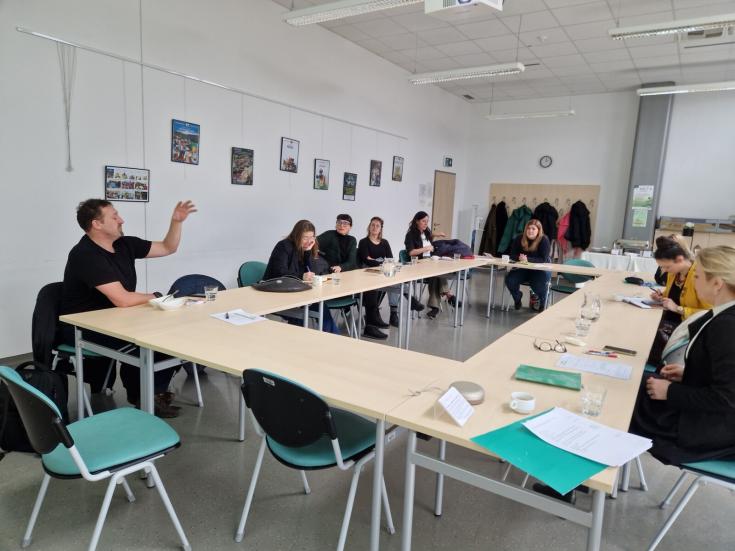Transferring Good Practices in Ljubljana
The Regional Development Agency of Ljubljana Urban Region (RRA LUR) took a significant step forward in developing policies for carbon-neutral urban waste management during its second stakeholder meeting in Ljubljana, as part of the Clear Cities project held the last 18th February. The event focused on exchanging best practices, analyzing the current waste management status, and strategizing the next steps to enhance sustainability.
A highlight of the meeting was the presentation of key insights gained from the study visit to Apeldoorn, Netherlands. Representatives from RRA LUR, JP Voka Snaga, and Smetumet shared innovative approaches they observed, including:
-
The "Pay as You Throw" economic model to incentivize waste reduction,
-
Effective educational campaigns aimed at fostering responsible consumption habits,
-
Mobile waste collection centers designed to improve access to separate waste disposal.
Strategic Focus Areas for Sustainability Beyond knowledge-sharing, the meeting also emphasized the importance of communication and public engagement. Stakeholders identified four key objectives for advancing sustainable waste management:
-
Reducing and preventing waste generation by influencing consumer behavior,
-
Encouraging reuse and developing individual skills to extend product life cycles,
-
Supporting local craftsmanship to strengthen circular economies,
-
Promoting the proximity economy, reducing carbon footprints by focusing on local production and consumption.
The concept of the "15-minute city" emerged as a key vision, advocating for urban models where essential services are accessible within 15 minutes on foot or by bicycle. This model supports local businesses, minimizes waste transportation emissions, and fosters a more sustainable urban ecosystem.
Key Findings from the Situational Analysis The second segment of the meeting was dedicated to finalizing the Situational Analysis, identifying strengths, weaknesses, opportunities, and threats (SWOT) across four major areas:
-
Responsible Waste Management & Carbon Footprint Reduction
-
Improved consumer awareness but a lack of systemic incentives for waste reduction.
-
-
Waste Collection & Transport Efficiency
-
Need for optimized logistics to reduce emissions and improve efficiency.
-
-
Processing, Recycling, and Waste Valorization
-
Insufficient infrastructure for textile and hygiene waste processing.
-
-
New Carbon-Free Waste Management Technologies
-
Opportunities in digital waste tracking, AI-driven optimization, and carbon-neutral processing.
-
Upcoming Events and Next Steps The next study visit will take place in Ljubljana from May 13 to 15, 2025, showcasing best practices and stakeholder involvement. In September, stakeholders will travel to Gothenburg, Sweden, to explore sustainable logistics solutions for reducing emissions in waste collection and transport. The insights gained will be transferred back to Slovenia in a follow-up meeting, ensuring continuous progress in implementing sustainable policies.
By then, the waste management status analysis will be complete, paving the way for a large-scale public awareness campaign designed by RRA LUR and its partners. Together, these efforts will contribute to a cleaner, more sustainable future for European cities.

